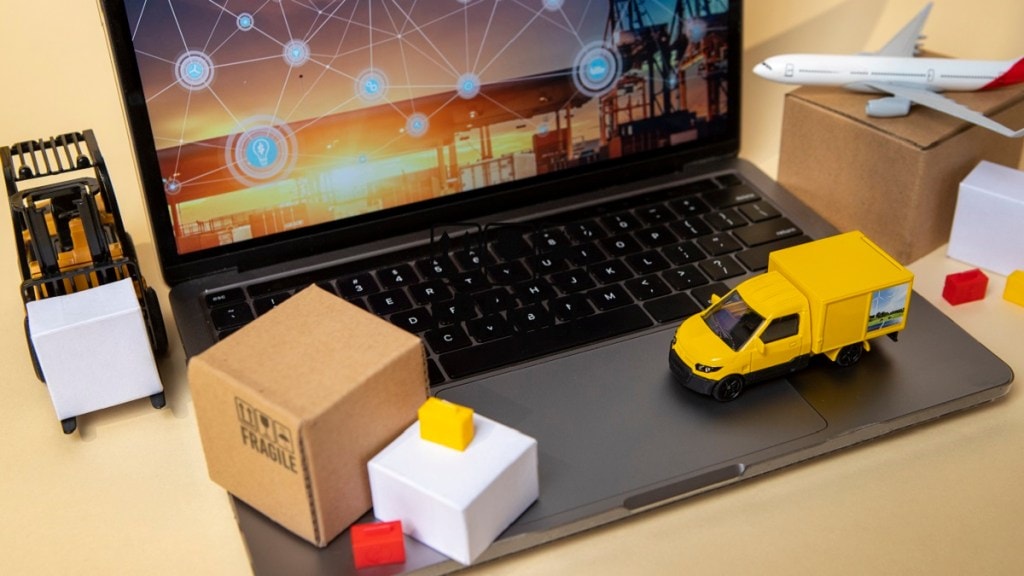– By Zaiba Sarang
The e-commerce sector has grown at an unprecedented rate in recent years, and this trend is anticipated to continue. Third-party logistics firms that focus on managing e-commerce logistics are now more in demand as a result of this. These businesses need to implement the newest e-commerce and SaaS logistics solutions to be competitive in the market. The importance of technology is growing as we move towards the future of logistics and e-commerce. Third-party logistics (3PL) businesses are relying increasingly on technology to streamline their operations and raise customer satisfaction as a result of the growth of online shopping and the desire for quicker and more effective shipments.
The emergence and efficacy of e-commerce technology
The development of e-commerce technologies is the first trend that was observed. Companies are substantially investing in technology to offer a better customer experience as more and more people purchase online. Artificial intelligence (AI) is one of the most widely utilized technologies. The personalization of the shopping experience, enhanced product suggestions, and automation of tasks like customer support are all made possible by AI. Augmented reality (AR) is a different technology that is revolutionizing online shopping. Customers may virtually try on things before making a purchase thanks to the use of augmented reality (AR) in creating immersive shopping experiences. In the fashion and cosmetics industries, where consumers want to preview how things will appear before they buy them, this technology is very helpful.
Lastly, voice-activated shopping is becoming more popular. More and more people are utilizing voice commands to make purchases as the popularity of smart speakers like the Amazon Echo and Google Home grows. In the upcoming years, this tendency is anticipated to intensify as technology advances.
SaaS logistics is driving the industry to a new era
The third-party logistics (3PL) industry has undergone a substantial change as a result of the revolutionary technology known as SaaS logistics. The whole logistics sector has undergone a transformation as a result, giving companies the tools they need to boost productivity, simplify processes, and improve customer satisfaction. SaaS logistics’ ability to interact with other systems is one of its primary benefits. Consequently, businesses are able to develop fully automated logistics systems that can manage everything from order management to shipping and delivery. Additionally, SaaS logistics offers businesses a high level of scalability, enabling them to quickly grow their operations as needed.
SaaS makes it possible to have a centralized communication platform. This permits the logistics staff to remain in touch and updated on any modifications or additions to orders or shipments. As a result, there may be better coordination and communication overall, which will increase productivity.
The accurate data analytics adds to reliability
As e-commerce has grown in popularity and supply chains have become more complicated, businesses are turning to data analytics to obtain insights into their operations and pinpoint areas for development. The major application of data analytics in business is to improve inventory control. Businesses may forecast future demand and modify their inventory levels by studying data on historical sales and demand. As a result, there are fewer stockouts and overstocks, which improves the efficiency of the supply chain and lowers costs.
Additionally, data analytics is being used to enhance delivery and shipping. Companies might find areas where they can increase efficiency and cut expenses by looking at data on shipping routes and delivery times. This involves reducing delivery times by optimizing shipping routes and enhancing last-mile delivery with the use of technologies like drones and autonomous vehicles.
Technology and SaaS interface is the final frontier for logistics
The e-commerce industry is developing quickly, and logistics providers are under growing pressure to provide clients with quicker, more dependable, and more sustainable solutions. Many repetitive tasks in the logistics sector can be handled by machines or artificial intelligence. Instead of trying to replace humans, the goal is to make their jobs simpler so they can concentrate on tasks that call for human intellect. For instance, robotic warehouses perform every activity, from labeling to packaging, with just the management of these robots being the responsibility of humans. With a one-time investment, this increases productivity, lowers costs, and lowers the risk associated with having people handle powerful machinery.
SaaS logistics built on AI, offer cloud-based solutions that offer greater scalability and adaptability than traditional logistics software. These systems offer real-time visibility into inventory levels, shipment status, and delivery schedules. This eliminates the need for human employees to physically verify inventory levels or manually inform clients of the status of shipments. There is less need for human interaction because this data is automatically updated and shared with clients in real-time. In a nutshell, technology is shaping the future of logistics and e-commerce. Companies are investing in new technology to enhance their operations and offer a better consumer experience, from AI and AR to SaaS logistics and data analytics. Future developments in these technologies are likely to be considerably greater as they develop further.
(Zaiba Sarang is the co-founder of iThink Logistics.)
Disclaimer: Views expressed are personal and do not reflect the official position or policy of Financial Express Online. Reproducing this content without permission is prohibited.


